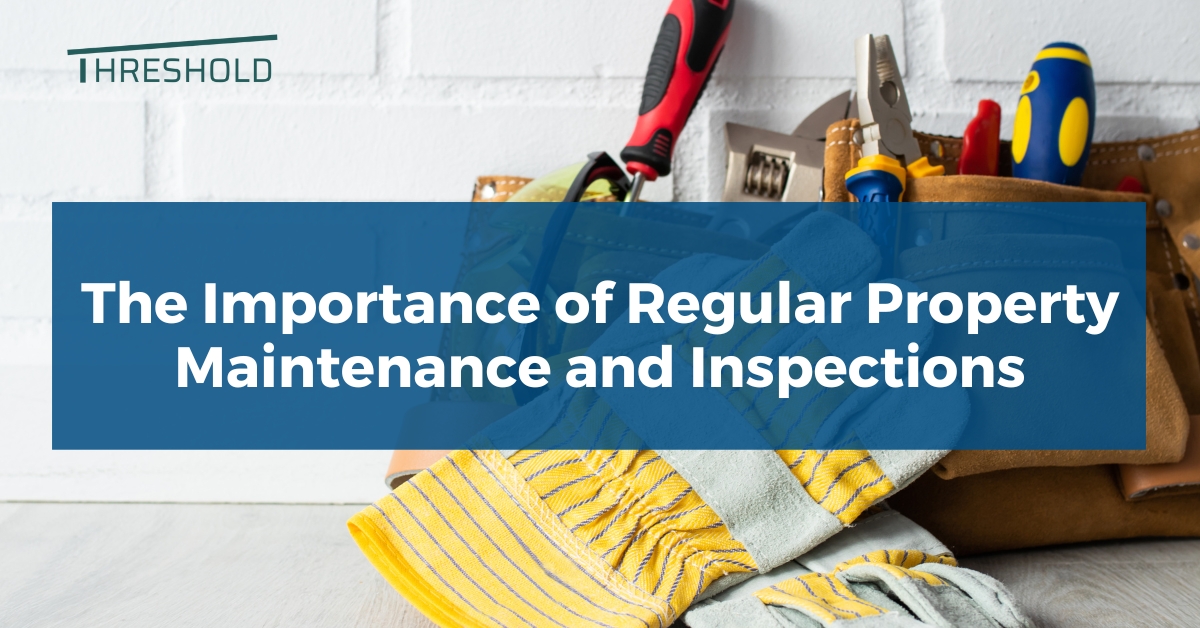Welcome to the top 5 tips for first-time landlords, a guide to property management success. I will provide you with the essential tips to help accidental landlords flourish.
Are you about to invest in a rental property for the first time? It can be quite a hassle, so fasten your seatbelt for an intriguing adventure in the real estate investment sector!
This investors’ guide will cover all you need to know to become a successful landlord.
First and foremost, being a landlord involves more than rent collection and sitting back to wait for the next paycheck. Beware—there are numerous legal obligations and duties that you must grasp. But don’t worry—I will make everything incredibly easy to understand.
5 Profitable Tips For First-time Landlords
- Understanding Local Laws and Legal Obligations
- Setting the Right Rental Price
- A Thorough Tenant Screening Process
- Property Maintenance, Upkeep, and Repairs
- Effective Communication with Tenants
Understanding Local Laws and Legal Obligations
Understanding the law before assuming any landlord’s responsibilities is important. You don’t want to get into trouble because of your ignorance regarding regulating rental property investment laws.
- Know The Local Tenant-Landlord Laws: Find out what rules apply to tenants and landlords in your area. Laws govern evictions, rent modifications, and leases in every region. To remain compliant, make an effort to comprehend the local legal procedures to keep your business safe now and in the future.
- Solid Lease Agreement: It’s similar to your landlord’s policies. A lease should include important information like rent, due dates, pet and smoking rules, and maintenance schedules. A signed agreement protects both parties and ensures the landlord and tenant get value for their money.
- Maintenance and Safety: Maintain a secure and well-kept property. Prioritize problems and ensure safety equipment, such as fire extinguishers, is operational. It’s not just good practice—it’s the law!
- Know Your Rights: Recognize your rights as a landlord. You must respect the tenants’ privacy when entering for maintenance or inspections. Knowledge averts possible problems.
Setting the Right Rental Price
Now that you have this fantastic property, it’s time to choose how much rent to charge. The skinny is as follows:
- Know Your Area
Examine your neighborhood thoroughly. How much do comparable houses rent for? To obtain a sense of it, you can look through internet listings or even speak with other landlords. - Take into Account Amenities
Does your home have any extra features like a gym, pool, or breathtaking view? Rent may go up a little because of them. - Factor in Market Demand
Does your neighborhood have a large demand for rentals? If so, you may be able to raise your prices a little. However, in order to draw in tenants in a crowded market, you might have to maintain a competitive price. - Be Realistic
Although you do want to turn a profit, renting out your space to too many people can turn them away. Locate the sweet spot where your income is both profitable and reasonable. - Crunch the Numbers
Consider all of your out-of-pocket costs, including your mortgage, taxes, insurance, upkeep, and any utilities you use. Make sure your rent gives you a profit in addition to covering these expenses. - Be Flexible
It takes a little dance to rent. Negotiating with prospective tenants may be necessary at times, particularly if they are willing to sign a longer lease or handle some maintenance duties themselves.
Remember that obtaining quality tenants and maintaining occupancy of your property depends on choosing the appropriate rental price. Thus, be patient, do your homework, and identify the ideal location that benefits both you and your tenants!
A Thorough Tenant Screening Process
A thorough tenant screening process is crucial. You’ll be renting out your property, and it’s important to ensure you’re obtaining a trustworthy tenant before giving them the keys. Here’s how to quickly and easily screen possible tenants:
- Ask for Basic information.
Begin by gathering basic data such as their full name, present address, job position, and phone number. This will give you an idea of who they are and how to contact them. - Background check
Never omit this step! Many property owners overlook performing a background check, only to regret it later. You need to check your prospective tenants’ backgrounds to discover if they have any criminal records or if they have had problems with prior landlords. This can give you peace of mind, knowing you have a responsible and trustworthy client.
Performing a background check is quite simple, and you can do it seamlessly online.
- Credit Inquiry
To find out if they have a history of making on-time bill payments, check their credit score. This can provide you with a wealth of information regarding their financial responsibilities and ability to pay the rent. - Ask for References
Don’t be afraid to contact prior employers or landlords for references. This might help you determine whether they are trustworthy and how they have operated as tenants in the past. - Interview Them
Arrange a conversation with them on the phone or in person. Find out about their employment, their reason for moving, and the qualities they want in a rental. This will enable you to determine whether they’ll fit in well at your location. - Trust Your Gut:
Lastly, have faith in your intuition. It’s acceptable to pass on someone if something seems strange or if they aren’t being honest with you. Waiting for the ideal tenant is preferable to rushing into a problematic situation.
You may discover a renter who will take good care of your property and pay rent on time by following these methods, which will make your life as a landlord much easier!
Property Maintenance, Upkeep, and Repairs
Now, let’s discuss maintaining the condition of your property! Ensuring your tenants have a seamless experience is of utmost importance. What you should know is as follows:
- Regular Check-ups
Similar to visiting the doctor for a checkup, frequent property inspections are necessary. As you move around, look for any cracks, leaks, or other issues that need to be fixed. - Fix Things ASAP
Don’t put off mending or replacing broken items. The severity of the damage and the expense of repair both increase with time. - Know Your Limits
If you’re not a do-it-yourself whiz, that’s cool. In certain cases, especially when it comes to plumbing or electrical problems, it is preferable to bring in a professional to do the repairs correctly. - Budget for Repairs
Amount money aside per month for unforeseen repairs. I promise you, they always seem to appear out of nowhere! - Maintain Records
Keep track of all the upkeep and repairs you perform on the property. It will be useful in the future and may even be helpful in the event that the property needs to be sold.
Keep in mind that a well-kept property increases the satisfaction of your tenants and helps to maintain its worth over time. Thus, don’t cut corners with upkeep and repairs!
Effective Communication with Tenants
Let’s talk about one of the most crucial aspects of being a competent landlord: having a dialogue with your renters.
Here’s how to maintain harmony and goodwill across your residential units:
- Be Friendly and Clearly Stated
Communicate with your tenants in a straightforward and cordial approach. Consider addressing your customers in straightforward terms and in an upbeat manner. Steer clear of technical phrases or jargon that could confuse them. - Be Readily Available
Inform your tenants that they can get in touch with you with any queries or worries. Provide them with your contact details and answer their calls or messages promptly. It demonstrates your concern and availability. - Listen Actively
Pay close attention to what your tenants are saying. Give them time to complete their sentence before answering. It demonstrates your regard for their ideas and emotions. - Address Concerns Promptly
Consider your tenants’ concerns carefully and respond to them as soon as you can if they have a complaint. Being proactive in resolving difficulties, such as a dripping faucet or noisy neighbors, fosters trust. Document Everything
Maintain detailed records of all correspondence and business dealings with your tenants. Emails, letters, and receipts for upkeep or repairs fall under this category.
- Seek Legal Advice if Needed
If a disagreement gets out of hand and you’re not sure how to handle it, think about seeing a landlord-tenant law expert. They can offer direction and support as you proceed through the legal system. - Follow Proper Procedures
If taking legal action is required, be sure to adhere to the legal requirements. Notifying the tenant and submitting paperwork to the court may be necessary in this situation. - Keep Learning
Staying informed and learning about your rights and obligations as a landlord is critical because laws and regulations can change over time.
Conclusion: Top 5 Tips for First-time Landlords
And there you have it—the top 5 tips for first-time landlords! Understand that while owning a property might be fulfilling, there are drawbacks.
You may confidently traverse the landlord path by being aware of your legal responsibilities, setting the appropriate rent, properly screening tenants, keeping up with upkeep, communicating effectively, managing funds sensibly, handling turnovers, and being ready for legal concerns.
Remain organized, continue learning, and don’t be afraid to ask for assistance when you need it. If you have the correct information and mindset, you can succeed! I hope your landlord’s adventure goes well!



